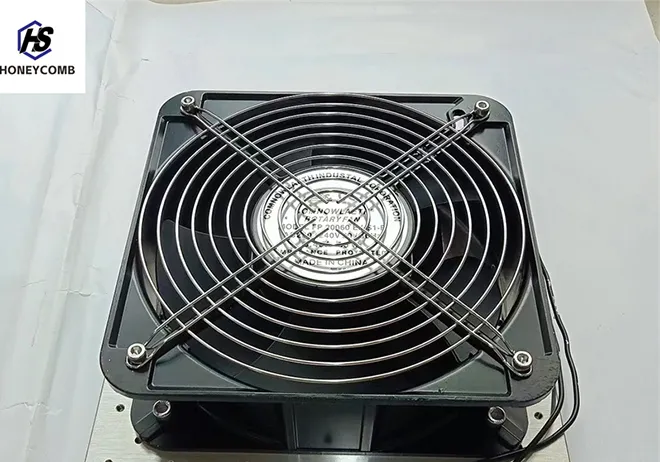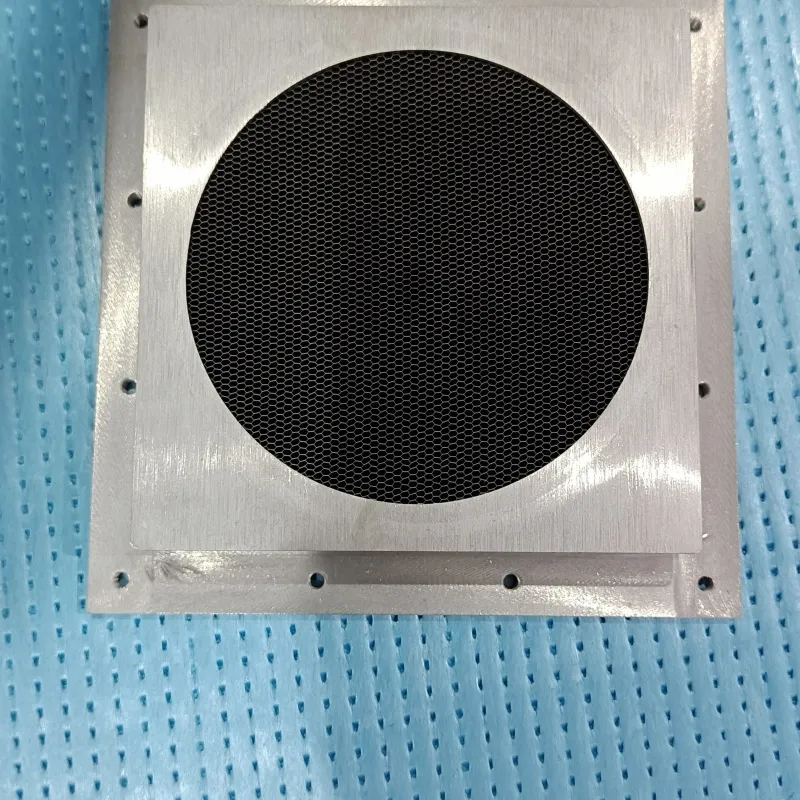
- Afrikaans
- Albanian
- Amharic
- Arabic
- Armenian
- Azerbaijani
- Basque
- Belarusian
- Bengali
- Bosnian
- Bulgarian
- Catalan
- Cebuano
- China
- China (Taiwan)
- Corsican
- Croatian
- Czech
- Danish
- Dutch
- English
- Esperanto
- Estonian
- Finnish
- French
- Frisian
- Galician
- Georgian
- German
- Greek
- Gujarati
- Haitian Creole
- hausa
- hawaiian
- Hebrew
- Hindi
- Miao
- Indonesian
- Italian
- Japanese
- Javanese
- Malay
- Persian
- Portuguese
- Punjabi
- Russian
- Spanish
- Swahili
- Telugu
- Vietnamese

Jan . 25, 2025 04:28
Back to list
Stainless Steel 1/8mm EMI/EMC/RF Shielded Honeycomb Vent
Aluminum ventilated beehives are revolutionizing the world of beekeeping, providing both amateur and professional apiarists with robust, efficient solutions for managing their colonies. These advanced beehives stand out for their ability to maintain an optimal environment for bees, ensuring they are comfortable, protected, and productive.
Trustworthiness is further reinforced by the widespread satisfaction among users who consistently note the ease with which they can clean and maintain these hives. Aluminum's smooth surface is less prone to harboring pathogens that could endanger bee health, a critical factor for maintaining biosecurity in apiaries. Regular cleaning and sanitation are greatly simplified, reducing the time and physical effort required to manage bee colonies effectively. Several testimonies from seasoned beekeepers highlight the user-friendly design of these hives. Lightweight yet sturdy, they are easily transportable, allowing beekeepers to move them according to seasonal flowering patterns. This mobility ensures that bees always have access to rich foraging areas, which directly boosts honey yields and subsequently, the beekeeper's profits. Additionally, the modular nature of aluminum ventilated beehives allows for easy expansion of the apiary. Beekeepers can effortlessly add new frames and supers to accommodate growing colonies, ensuring that their hives can grow in tandem with their bees. This flexibility is particularly crucial for commercial keepers who need to maximize every available resource during peak production times. A growing trend is also seen in the educational use of these hives. Beekeeping courses often incorporate aluminum ventilated hives into their programs, demonstrating their practical advantages to new learners. The visibility and accessibility of these hives help students understand the importance of hive environment control, instilling best practices from the onset of their beekeeping journey. Aluminum ventilated beehives offer a state-of-the-art solution that combines the principles of modern engineering with the time-honored traditions of beekeeping. By providing superior climate control, durability, and eco-friendliness, these hives are becoming an essential tool for both beginner and veteran beekeepers. Their continued adoption marks a significant advancement in the quest for sustainable and productive beekeeping practices, ensuring that both bees and humans can benefit symbiotically from this age-old relationship.


Trustworthiness is further reinforced by the widespread satisfaction among users who consistently note the ease with which they can clean and maintain these hives. Aluminum's smooth surface is less prone to harboring pathogens that could endanger bee health, a critical factor for maintaining biosecurity in apiaries. Regular cleaning and sanitation are greatly simplified, reducing the time and physical effort required to manage bee colonies effectively. Several testimonies from seasoned beekeepers highlight the user-friendly design of these hives. Lightweight yet sturdy, they are easily transportable, allowing beekeepers to move them according to seasonal flowering patterns. This mobility ensures that bees always have access to rich foraging areas, which directly boosts honey yields and subsequently, the beekeeper's profits. Additionally, the modular nature of aluminum ventilated beehives allows for easy expansion of the apiary. Beekeepers can effortlessly add new frames and supers to accommodate growing colonies, ensuring that their hives can grow in tandem with their bees. This flexibility is particularly crucial for commercial keepers who need to maximize every available resource during peak production times. A growing trend is also seen in the educational use of these hives. Beekeeping courses often incorporate aluminum ventilated hives into their programs, demonstrating their practical advantages to new learners. The visibility and accessibility of these hives help students understand the importance of hive environment control, instilling best practices from the onset of their beekeeping journey. Aluminum ventilated beehives offer a state-of-the-art solution that combines the principles of modern engineering with the time-honored traditions of beekeeping. By providing superior climate control, durability, and eco-friendliness, these hives are becoming an essential tool for both beginner and veteran beekeepers. Their continued adoption marks a significant advancement in the quest for sustainable and productive beekeeping practices, ensuring that both bees and humans can benefit symbiotically from this age-old relationship.
Next:
Products categories
Latest news
-
Why Vented Aluminum Honeycomb Is Leading the Way in Shielding and Ventilation SolutionsNewsJul.18,2025
-
Why Stainless Steel Honeycomb Panel is the Ultimate Choice for High-Tech Shielding and ProtectionNewsJul.18,2025
-
Why Honeycomb Strips Are Revolutionizing High-Speed Sealing SolutionsNewsJul.18,2025
-
Shielded Glass Innovation Powers the Future of Electromagnetic ProtectionNewsJul.18,2025
-
Precision Starts Here: Revolutionizing Airflow Control with Honeycomb Wind Tunnel SolutionsNewsJul.18,2025
-
Elevate Industrial Performance with Precision-Engineered Steel Honeycomb Core SolutionsNewsJul.18,2025
-
Vented Aluminum Honeycomb: A Smart Shield for Airflow and EMI ControlNewsJul.11,2025















